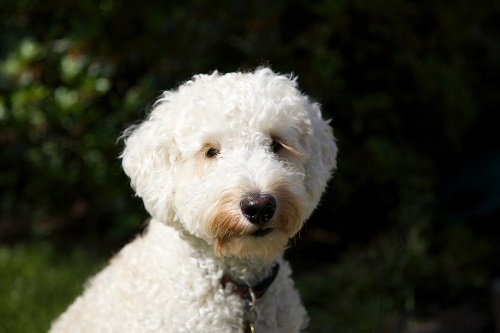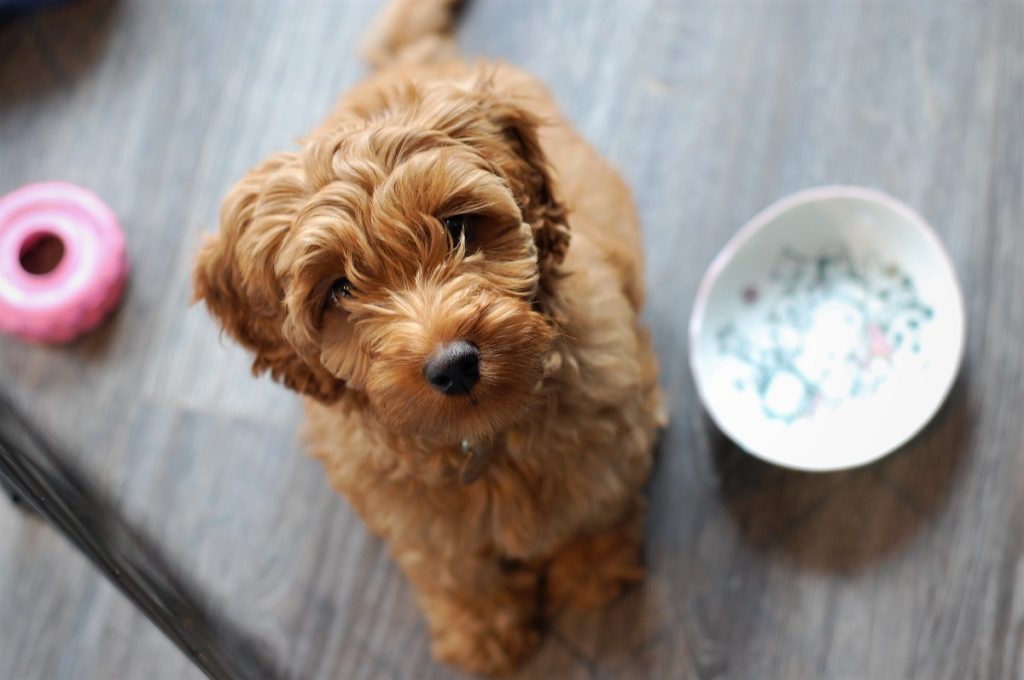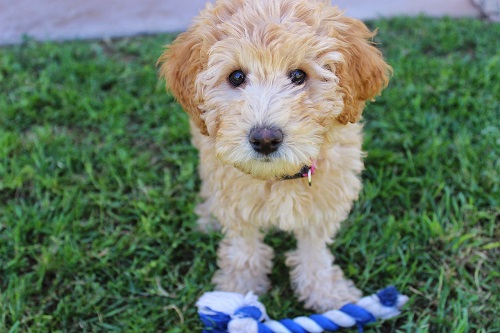For potential Labradoodle pet parents, the excitement of adding a fur baby to the family is one of those milestone moments in life. However, for those who suffer from pet allergies, it’s important to research the background of so-called ‘hypoallergenic’ breeds – and then determine if owning a dog is going to be the healthiest move for everyone involved. If you have ever wondered, “Do Labradoodles shed?”, this blog post is for you. This article will discuss the shedding habits of a Labradoodle, as well as breed history, dog grooming tips and more.
Labradoodle History: Bred Not To Shed
A “designer” dog that is a Poodle/Labrador hybrid, Labradoodles were initially developed in the late 80s in Australia as hypoallergenic guide dogs. While they’re certainly not one of the oldest breeds around, the Labradoodle has grown in popularity in the last few
decades. One of the main reasons he’s become such a favorite among the canine crowd – besides his fun-loving personality, high energy, sweet disposition and ability to be trained (they’re frequently used as service and therapy dogs) – is because Labradoodles typically shed less than the average pooch. While this may vary from dog to dog (i.e., if he’s got more Lab than Poodle in his bloodline, his coat will be more likely to shed), in general, Labradoodles were intended to be ‘low-shedding’ dogs.
Are Labradoodles Hypoallergenic: Separating Facts From Fiction
It’s time to debunk the myth once and for all – there is no evidence for the classification of any dog breed to be considered ‘hypoallergenic’. While there are certain breeds that may be less likely to trigger people who suffer from chronic allergies, ultimately, all dogs are possible allergy-catalysts. In fact, science has proven that it’s the proteins in the saliva, sweat, and urine (known as Can f 1) and dog albumin (a protein found in canine blood) that people are allergic to. The commonly-held misconception that a dog’s hair, fur or dander is the stimuli of an allergic reaction is actually untrue.
In a nutshell, when the aforementioned proteins on a dog’s hair become airborne and inhaled (particularly by allergy-prone humans)– it triggers the allergy attacks. And since all dogs produce these bodily fluids (i.e., proteins) and all dogs shed, every type of breed can potentially cause an allergic reaction – it doesn’t happen any less frequently in non-shedding dogs than it does in dogs who shed constantly. However, some people find that dogs who shed profusely are more apt to trigger their allergies – and the logic behind that argument might be that the hairs act as the ‘carriers’ of said proteins, setting off an attack.
Other research goes a step further, insisting that some individual’s allergies may vary based on the dog breed. Ultimately, potential pet owners need to proactively determine if anyone in the household suffers from allergies, and if so, pinpoint what type of pets they can tolerate (if any). Regular dog grooming and frequently vacuuming and dusting the home can help minimize dog-related allergy attacks for inhabitants and guests, and a HEPA machine can also help to eradicate airborne allergens.
Summary: Research Breeds Before Adoption
All too often, there are many enthusiastic adoptive families who welcome a new pup into their home, only to discover a parent or child is very allergic – and they must give him up for adoption again. In order to avoid such emotionally difficult scenarios, be certain to research the allergy history of everyone in the household first and foremost. If someone at home does suffer from any type of pet allergy, make sure to consider allergy-friendly dog breeds.
Finally, although there is no true ‘hypoallergenic’ breed, Labradoodles typically shed less than many other types of dogs, making them a desirable choice worth considering for those who seek a low-shedding pup. Be sure to research his background, as Doodles who resemble their Poodle lineage more than their Lab family tree will be less likely to shed, since Poodles’ coats are short, curly and resemble fur. Experts also advise frequent and adequate grooming to ensure a happy dog and a clean and healthy environment for everyone.
Sources Cited:
1) “Labradoodle.” Dogtime.com, (no publish date), https://dogtime.com/dog-breeds/labradoodle. Accessed October 15, 2019.
2) Malinowski, Grace. “Do Labradoodles Shed? – Is This Breed As Hypoallergenic As They Say?” The Happy Puppy Site.com, January 25, 2019, https://thehappypuppysite.com/do-labradoodles-shed/. Accessed October 15, 2019.
3) By Jamie. “Do Labradoodles Shed Or Not? Real Answers From Actual Owners!” Trending Breeds.com, (no publish date), https://www.trendingbreeds.com/do-labradoodles-shed/. Accessed October 15, 2019.





